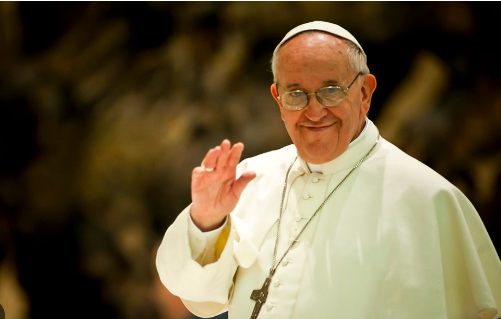

Pope Francis died of a stroke and subsequent irreversible heart failure, the Vatican has said.
In a statement on Tuesday, the Vatican said Pope's death was due to stroke and irreversible cardiocirculatory collapse.
Director of the Directorate of Health and Hygiene of the Vatican City State Andrea Arcangeli issued the official certification.
According to the medical report, the Pope had a prior history of acute respiratory failure caused by multimicrobial bilateral pneumonia, multiple bronchiectases, high blood pressure, and Type II diabetes.
“His death was confirmed through electrocardiographic thanatography. I hereby declare, that the causes of death, to the best of my knowledge and judgment, are as stated above,” Arcangeli said.
Pope Francis, born Jorge Mario Bergoglio, served as the 266th pontiff of the Roman Catholic Church and was widely known for his progressive reforms and focus on social justice.
His death marks the end of a transformative papacy that resonated deeply not only within the Church but among global communities, including millions of Catholics in Kenya.
The Vatican said after announcing his death, that Francis's body would be laid in a coffin in a chapel in his personal residence.
Unlike other popes, Francis did not live in the penthouse apartment in the Apostolic Palace but instead resided in more humble quarters in the form of a two-room suite in the Vatican's Saint Martha guesthouse.
Pope Francis's death sets into motion the political process for the Church to select a new leader.
Cardinals from around the world will descend on the Vatican for the election, known as a conclave.
Traditionally, the 15-day mourning period is observed before the conclave begins. But Francis's predecessor Benedict changed the rules in 2013 to allow it to begin earlier if the cardinals wished.
The vote typically takes place 15-20 days after the Pope's death.
President William Ruto led the nation in mourning the death of Pope Francis, calling it a profound loss to the Catholic Church and the global Christian community.
Ruto praised the late pontiff as a spiritual leader who embodied humility, compassion, and justice throughout his life.
“He exemplified servant leadership through his humility, his unwavering commitment to inclusivity and justice, and his deep compassion for the poor and the vulnerable,” Ruto said.


















